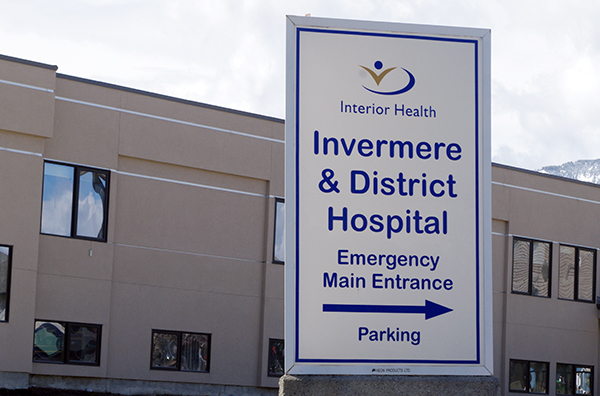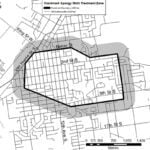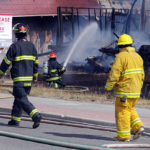Home »

IDH Chief of Staff provides local COVID-19 update
And addresses the use of non-medical cloth face coverings
Dr. Gareth Mannheimer, Chief of Staff for the Invermere & District Hospital (IDH), and a family physician provides a COVID-19 update and answers questions regarding the use of non-medical cloth face coverings for our community in the fight against COVID-19 spread.
Thank you for your responsible actions, commitment and diligence by playing your part, staying apart and following the provincial recommendations during this COVID-19 pandemic.
I am pleased to let you know that since my last report, we have had no new test positive cases in our community. Other communities in the East Kootenay have not fared as well and I must stress that this virus is still very much present and continues to pose a significant threat. The local patients diagnosed with COVID-19 continue to do extremely well and are well on the way to a full recovery. We need everyone to stay focused in the weeks ahead. Again, I must stress the importance of social and physical distancing in your daily actions and vigilance in adhering to the provincial medical guidelines designed to flatten the COVID-19 curve.
Vigilance, Vigilance and More Vigilance
- We must stay smart. Stay calm and play it safe. This virus is extremely contagious and poses a potentially life-threatening risk to everyone. Please, stay home if you can. If you must go out, stay at least two metres (6.5 feet) from other people and practice exquisite hand hygiene. If you are symptomatic, please self-isolate, use the provincial self-assessment tool at https://bc.thrive.health/covid19 and seek medical advice if you need further assessment. Call us first! We are prepared and ready to help you. Please don’t go to the clinics or to the hospital unless you have an emergency or have been advised to by our local caregivers.
- Our community doctors and medical health care providers remain ready to respond to all your health needs including questions about COVID-19. The hospital and the clinics can be reached at the phone numbers listed below:
Invermere & District Hospital (250) 342-9201
Invermere Medical Clinic (250) 342-9206
Chisel Peak Clinic (250) 341-6900
- We have seen a general decline in the use of our hospital Emergency Department for minor and non-emergency ailments. We are very grateful for this as it helps us to quickly address the most critical and urgent cases, but please do not be afraid to use the Emergency Department if you really have an emergency. People can and will get sick during this pandemic. If you feel unwell, please do not hesitate to call the clinics or the hospital on the phone numbers I have listed above. We are eager to talk about your general health issues and to provide you direction on the next steps for you and your family. We are in this together and we are here for you.
- We must be diligent in our efforts to follow the provincial guidelines to mitigate any potential for a surge in COVID-19 cases. We haven’t reached our peak yet. Right now, we are at a critical juncture, and the next two weeks will likely define what our next two months will look like. We may either see a trickle or a dramatic increase in COVID-19 cases as people exposed by the first round of community infection (locally or internationally from travel) reach their anticipated incubation period. We continue to prepare for a surge. We are working closely with regional and local government, doctors and health care providers to prepare our response for a challenging environment should it arise.
- We all have the ability to help dictate what the next few weeks will look like. I am asking you to be disciplined with social and physical distancing, hand-washing, remembering not to touch your face and staying at home whenever possible. You are required to be compliant with quarantine for 14 days if you are arriving to the Columbia Valley from outside Canada. If you are symptomatic, you must try and self-isolate and stay at home for at least 10 days and until your symptoms have improved. Again, if you are unsure about these recommendations, please contact us for clarity and err on the side of caution.
What About Cloth Face Coverings For Community Use?
One of the most frequent questions I’m being asked is whether there is value in healthy people wearing cloth face coverings to help curb the spread of COVID-19. Well, the answer has and continues to change as we learn more. While there is no firm consensus yet on this controversial question, my instinct is to answer yes, but with a clear understanding that their function is different to surgical and N95 respirator masks and, with some important caveats on limitations and proper use.
- At the beginning of this pandemic, provincial and BC Centre for Disease Control guidelines set out that face masks were only to be worn by symptomatic patients, caregivers for sick patients and health care professionals. This was based on the understanding that asymptomatic people were at low risk of transmitting the virus, that wearing a face covering offered a false sense of security (i.e. wash hands, stay at home and physical distance is still more beneficial) and that people were more likely to touch their faces potentially increasing the spread of the virus.
- Fact – Recent studies now suggest that we underestimated the significance of asymptomatic patients (patients with the virus but with no symptoms) and early infected patients (those that don’t yet have symptoms) and their ability to transmit the virus. A cloth face covering may help us in our fight to lower the spread of the virus.
- Response – It is not unreasonable for you to wear a cloth face covering made from cotton or a cotton polyester cloth that covers your face and nose when you must leave the house for an essential errand. Again, a cloth face covering is not a replacement for hand hygiene, quarantine, isolation and social or physical distancing. Remember, the safest first line of defense is to stay home.
- We are working with volunteers to make cloth face coverings for those who can’t make their own. If you want to make your own, there are many websites that can show you how to make a non-medical cloth face covering to help slow the spread of COVID-19. Here is one example at https://www.cdc.gov/coronavirus/2019-ncov/prevent-getting-sick/diy-cloth-face-coverings.html
- These are the guidelines on how to wear the cloth face covering:
- Make sure it fits snugly and comfortably against the side of the face
- Secure it with ties or ear loops
- Make sure it has multiple layers of fabric
- Allow for breathing without restriction
- Make it from a cotton or cotton polyester fabric that can be laundered and machine dried without damage or change to its shape
- Practice good hygiene, hand washing, before, during and after wearing
- Don’t place it on any child under the age of 2
- Self-distancing recommendations in public still apply.
- Finally, it is extremely important to emphasize that these cloth face coverings are not surgical face masks or N95 respirators. These critical supplies must continue to be reserved for critical first responders and frontline medical professionals.
 I would like to thank the many seamstresses in the valley who have volunteered and have already made and donated face protection to the hospital and the community. Please drop completed items off at the Invermere Fire Department. I strongly encourage you to reach out to Erin Chandler who can be reached at [email protected] before you head over to the Firehall so that we can manage the logistics safely and effectively. Erin will be our key coordinator so that everyone in the valley gets fair and equal access. Erin will work to determine points where you can find and pick-up the cloth face coverings. We will advise where our established pick-up points for cloth face covering will be in the valley.
I would like to thank the many seamstresses in the valley who have volunteered and have already made and donated face protection to the hospital and the community. Please drop completed items off at the Invermere Fire Department. I strongly encourage you to reach out to Erin Chandler who can be reached at [email protected] before you head over to the Firehall so that we can manage the logistics safely and effectively. Erin will be our key coordinator so that everyone in the valley gets fair and equal access. Erin will work to determine points where you can find and pick-up the cloth face coverings. We will advise where our established pick-up points for cloth face covering will be in the valley.
If you are interested in making cloth face coverings for those in the community who may need one and want to volunteer, please sign up at www.volunteercv.ca. We will contact you to coordinate efforts. Thank you in advance for your time and kindness.
If you can donate materials for making cloth masks again please contact Erin Chandler at [email protected]. These materials include cotton or cotton polyester fabric and elastic for mask straps.
Many Thanks From A Grateful Community
I continue to be humbled by the generosity and willingness of those who have shared precious personal protective equipment (PPE) for our doctors and medical health care providers. We are so thankful for the donations from individuals and businesses from our local community and our part-time residents from Alberta.
I want to thank the seamstresses that have been making PPE for our local health care team. The gowns and face masks are very much appreciated.
I am so proud of the extraordinary job truck drivers are doing during this crisis to keep our community connected, supplied and stocked at our grocery stores, pharmacies and essential services. Your courage and commitment during this difficult time is recognized and valued by all of us. Thank you.
On behalf of our community, I would like to thank our health care administrators, doctors, pharmacists and medical health care providers for their tireless work, sacrifice and focus to provide exceptional care to everyone in this wonderful little community we all call home. Stay strong!
e-KNOW







